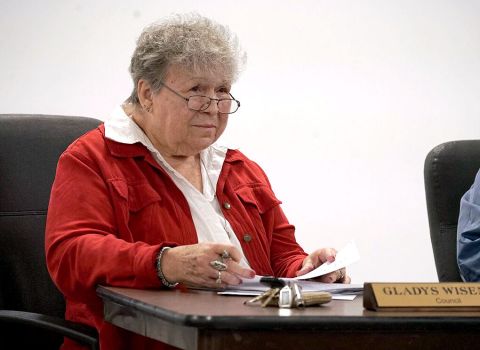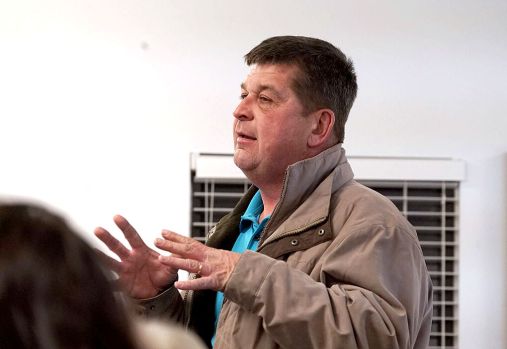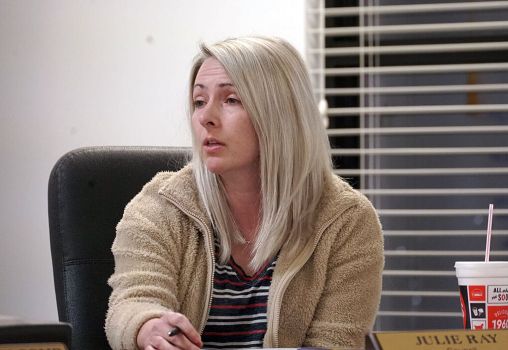Holly Pond councilmember looks to block local recovery center
Published 6:58 pm Wednesday, February 7, 2024
HOLLY POND — The Holly Pond Town Council provided dissenting opinions while discussing a new faith-based recovery center with the town, Chain Breakers Ministries, after organizers introduced themselves to the council last month.
Doug Canter, one of the program’s primary organizers, told the council on Monday, Jan. 8, that the program was designed as a 12-month, “Christ centered,” recovery program. He said his team was hoping to begin housing roughly 20 individuals at the former Bread of Life Church on Brooklyn Road sometime in March, but would soon be expanding to accommodate 36.
Councilmember Julie Ray expressed her concern over the site’s proximity to residential neighborhoods last month and echoed those concerns Monday, Feb. 5. She said she felt as though the facility could negatively impact residential property values within the town.
“I’m not against what they are trying to do. I just don’t think it’s the perfect location. I’m for our town growing and prospering, not our residential property values declining. I think it needs to be researched further and something needs to be done,” Ray said.
During last month’s meeting Ray mentioned only one property separates her home from the proposed location of the center.
Councilmember Gladys Wisener questioned Ray’s stance on having the facility relocate outside the town’s limits.
“Where do you think they should move? Should they just build an island and live on it?” asked Wisener.
Although Canter told the council in January that residents would be limited to first time offenders of only non-violent and non-sexual crimes, Ray said courts are quick to offer rehab to a variety of offenders. She said she spoke to a “lady who lives next to a facility” in Arab who said residents regularly leave the facility to “walk the streets and steal things from the neighborhood.
Councilmember Deborah Holcombe said that some residents not in recovery programs are guilty of the same actions. Holcombe said she participates in her church’s Celebrate Recovery program and said she has seen the benefits of these types of programs first hand.
“I have seen so many lives changed from [Celebrate Recovery]. Yea, you’re going to still have some that it’s not going to work for, but if there’s just one out of 99, then who’s to say it’s not worth it. I think I would rather live beside that halfway house and know that they have some kind of supervision than the people who live around the corner from me right now. They have no supervision. There’s all kinds of folks loose in the community that we seem to not be worried about. I think this house and them giving people a second chance is a good thing,” Holcombe said.
Mayor Carla Hart offered a similar view.
“My thoughts are that they are here to help people. I don’t know where they are supposed to be situated at or who’s supposed to pick where they’re supposed to be. Maybe 10 acres off into the woods? You know, there are no sexual predators, no domestic violence, they are supposed to be minimal offenders from what they told us. Nothing has happened that has affected us yet and if it’s going to happen it will tell on itself,” Hart said.
Holly Pond resident Jeremy Collier offered a different take. Like Ray, Collier said he was all for offering people a second chance, but took the same “not in my backyard” stance.
“I love the Lord and I want people to get saved and get healed, but you [the council] know that if this thing goes bad … y’all are going to get the blame,” Collier said. “If I had a church, I wouldn’t ever think in my mind to bring a halfway house into a residential section.”
When reached by phone Tuesday, Feb. 6, Canter said these types of comments were unfortunate and typically make those suffering from addiction feel a stronger sense of hopelessness and uselessness than they already do. He said his goal is to counteract these feelings by providing residents with a sense of worth and value.
“This is obviously going to make these guys feel unwanted in the community. It’s going to make them feel like where they are at is where they need to be. These guys don’t get loved on enough,” Canter said. “That’s where my staff and our board of directors will come in and the ones who do want us there. That’s where we come in and give them extra love and show them they’re worthy and they’re loved. We need to show them that there is more than the vicious cycle of court, jail, court, jail. Let’s be that middle piece and stop that cycle … Just one negative person can make somebody feel useless, hopeless and unwanted and we don’t want that for these gentlemen. We want them to come out of our program and feel like somebody. That there is a God waiting to love them and save their souls and that there are human beings out there waiting to love on them and be with them.”
Ray noted a section of the town’s ordinance regulating the operation of scrap metal and recycling facilities which requires a majority council vote before issuing a business license. She said because the organization had not obtained a business license with the town and was not planning to open until March the council had a window in which it could draft a similar ordinance to create a roadblock for the facility.
“We did pass the ordinance for scrapyards that says if an applicant comes in for an application they have to be reviewed by the council for approval or denial. This is the same scenario, if I just need to come out and say it then we could create another ordinance,” Ray said. “In this case it would take a quick ordinance and a special meeting to prevent it from coming into town.”
Alabama law requires nonprofit organizations file a Certificate of Formation with the Alabama Secretary of State’s Office, 1023 and 990 forms with the Internal Revenue Service and to register as a nonprofit with the Alabama Attorney General’s office. Local business licenses are dependent on county and municipal ordinances. Canter said he has asked both Cullman County and Holly Pond officials about obtaining a business license and was told it would not be required because of the organization’s faith-based designation.
He said his goal has never been to create enemies on the council or in the community, but said a few dissenting opinions would not deter him from providing what he believed to be an invaluable resource to those in need.
“Her [Ray] thinking would be different if one of her children or family members needed this recovery center. First and foremost, we want to lead people to God. Secondly, we want to help the community and save lost souls. These people feel like nobody cares about them so they are turning to some kind of addiction. We want to help Cullman County clean up. We’re not going to just put men in this place and let them trash this place. We’re going to step out and reach out to the mayor to help clean up the community. She [Ray] had complaints last month about trash in road. We’re going to be there to help them pick that trash up and help elderly people who have trees fall in their yard. We aren’t out here to draw enemies, we’re out here to do God’s work. At the same time, if I have one or two people upset with me for doing God’s work then I’m okay with that,” Canter said.







